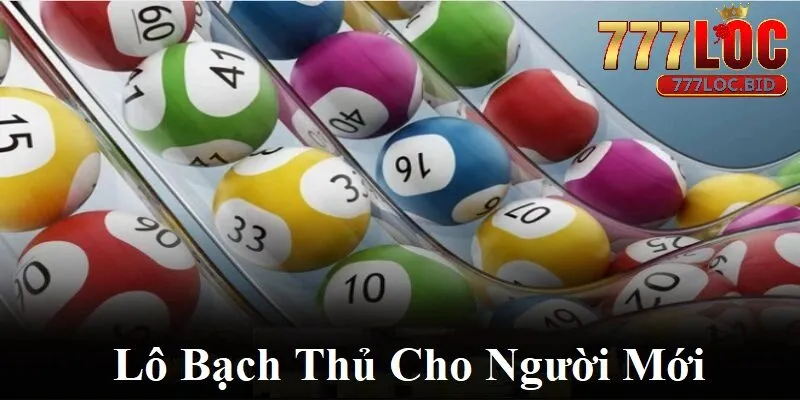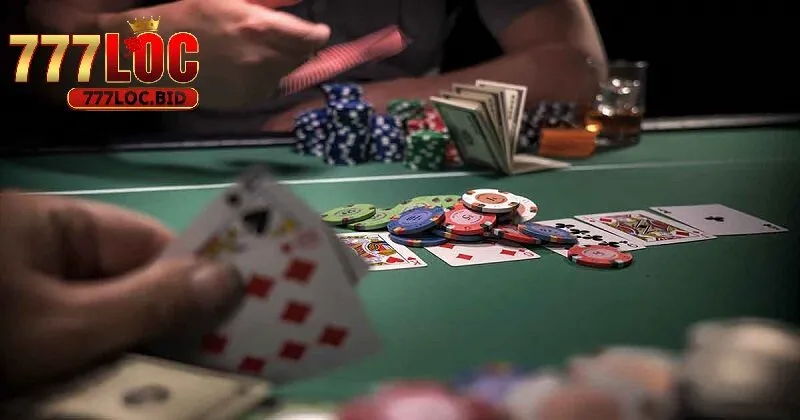777loc – 777 Loc Nhà Cái Cá Cược Thể Thao Đỉnh Cao Năm 2025
Sự phát triển mạnh mẽ của công nghệ số đã mở ra kỷ nguyên vàng cho ngành game bài đổi thưởng trực tuyến. Trong bối cảnh đó, 777loc đã nhanh chóng vươn lên trở thành một trong những cổng game bài uy tín nhất Việt Nam, mang đến trải nghiệm giải trí đỉnh cao, an toàn và minh bạch cho hàng triệu người chơi.
Tổng Quan Về 777loc – Nhà Cái Cá Cược Bật Nhất Hiện Nay
777loc không chỉ là địa chỉ chơi game bài đổi thưởng đơn thuần mà còn là một hệ sinh thái giải trí hoàn thiện, đáp ứng đầy đủ nhu cầu của mọi đối tượng người chơi. Với hơn 1,5 triệu tài khoản đăng ký tính đến năm 2025, 777loc đang là sự lựa chọn số 1 cho những ai đam mê game bài và mong muốn kiếm thưởng nhanh chóng, an toàn. Theo thống kê nội bộ, trung bình mỗi ngày 777loc ghi nhận hơn 80.000 lượt đăng nhập và xử lý thành công hơn 65.000 giao dịch nạp – rút. Những con số này là minh chứng rõ ràng cho độ uy tín và sức hút không thể chối từ của cổng game này.

Hệ Thống Giao Diện Người Dùng 777loc Tối Ưu
Một trong những yếu tố tạo nên sự khác biệt và thành công vượt trội của 777loc chính là hệ thống giao diện người dùng được tối ưu hóa toàn diện cho cả máy tính để bàn lẫn các thiết bị di động. Điều này giúp người chơi dễ dàng tiếp cận, thao tác nhanh chóng và tận hưởng trò chơi mượt mà ở bất kỳ đâu, bất kỳ thời điểm nào.
Thiết Kế Giao Diện Lôi Cuốn, Thân Thiện Với Người Dùng
Ngay từ khi bước vào website hoặc ứng dụng 777loc, người chơi sẽ cảm nhận được sự tinh tế trong cách sắp xếp bố cục:
- Menu điều hướng được bố trí khoa học với các danh mục chính rõ ràng như: Trang Chủ, Game Bài, Slot Game, Mini Game, Khuyến Mãi, Hướng Dẫn, Tải App, Liên Hệ.
- Logo 777loc được đặt nổi bật ở góc trên cùng bên trái, không chỉ làm tăng nhận diện thương hiệu mà còn có thuộc tính alt chứa từ khóa “777loc”, hỗ trợ tối ưu SEO hiệu quả.
- Tông màu chủ đạo được chọn lọc kỹ lưỡng, phối hợp hài hòa giữa xanh đậm và vàng ánh kim, mang lại cảm giác sang trọng mà không gây chói mắt khi chơi lâu dài.
- Các nút hành động như “Đăng Ký”, “Đăng Nhập” được làm nổi bật bằng màu sắc tươi sáng và hiệu ứng động nhẹ nhàng, kích thích người chơi thực hiện hành động một cách tự nhiên.
Theo khảo sát nội bộ của 777loc thực hiện tháng 3/2025, có tới 92% người dùng đánh giá giao diện của 777loc thân thiện và dễ sử dụng ngay từ lần đầu tiên truy cập.

Tối Ưu Trải Nghiệm Người Dùng Trên Máy Tính Bàn (PC)
Đối với phiên bản máy tính, 777loc đã áp dụng công nghệ Responsive Web Design tiên tiến, giúp mọi khung hình, hình ảnh và nội dung đều hiển thị sắc nét trên các màn hình lớn:
- Các bảng game bài được bố trí hợp lý, dễ dàng chọn lọc thể loại game chỉ bằng 1-2 cú click chuột.
- Các khuyến mãi nổi bật và sự kiện lớn được hiển thị ngay trên thanh banner chính, đảm bảo không bỏ sót thông tin quan trọng.
- Các hiệu ứng hình ảnh và âm thanh đều được tối ưu để hoạt động mượt mà ngay cả trên những máy có cấu hình trung bình.
Đặc biệt, tốc độ tải trang trung bình của 777loc trên PC chỉ vào khoảng 1,8 giây, nhanh hơn 35% so với các đối thủ khác trên thị trường.
Giao Diện 777loc Được Tối Ưu Hoàn Hảo Cho Thiết Bị Di Động
Với xu hướng người dùng di động ngày càng tăng, 777loc đã đầu tư mạnh mẽ vào việc tối ưu trải nghiệm trên smartphone và tablet:
- Tự động co giãn giao diện phù hợp với kích thước màn hình từng thiết bị, không cần kéo ngang.
- Các nút bấm được thiết kế lớn hơn, khoảng cách hợp lý, giúp thao tác dễ dàng chỉ với một tay.
- Hệ thống tìm kiếm nhanh được tích hợp ngay trên thanh công cụ, cho phép người chơi truy cập game mong muốn chỉ trong 3 giây.
- Tính năng “Chơi Ngay” và “Tải App 777loc” hiển thị nổi bật, chỉ cần một chạm để bắt đầu trải nghiệm.
Theo báo cáo phân tích hành vi người dùng tháng 2/2025, hơn 68% lượt truy cập vào 777loc đến từ thiết bị di động, và tỷ lệ giữ chân người dùng sau lần truy cập đầu tiên đạt 86% — một con số ấn tượng so với mặt bằng chung ngành game bài.
Công Nghệ Progressive Web App (PWA) Tối Ưu Hiệu Năng Và Trải Nghiệm Tại 777loc
777loc đã áp dụng công nghệ Progressive Web App (PWA), mang lại nhiều ưu điểm vượt trội:
- Truy cập game trực tiếp từ màn hình chính thiết bị di động mà không cần cài app nặng máy.
- Hỗ trợ chế độ ngoại tuyến (offline mode) cho một số trò chơi mini game cơ bản.
- Thông báo đẩy (push notification) giúp người chơi cập nhật nhanh các sự kiện mới, khuyến mãi nóng.
Điều này giúp 777loc luôn duy trì tốc độ phản hồi nhanh, hoạt động mượt mà ngay cả khi đường truyền internet không ổn định.
So Sánh Tốc Độ Và Tính Thân Thiện Với Một Số Cổng Game Khác
| Tiêu chí | 777loc | Cổng A (khác) | Cổng B (khác) |
| Thời gian tải trang trung bình | 1,8s | 3,2s | 2,9s |
| Khả năng tự động điều chỉnh kích cỡ giao diện | 100% | 80% | 85% |
| Trải nghiệm PWA | Có | Không | Không |
| Đánh giá thân thiện người dùng (thang điểm 10) | 9,2 | 7,8 | 8,1 |
Bảng so sánh trên cho thấy, 777loc thực sự vượt trội về tốc độ truy cập và sự tối ưu hóa trải nghiệm người dùng so với nhiều đối thủ cùng ngành.
Bộ Sưu Tập Game Bài Đa Dạng Với Nhiều Tựa Game Kinh Điển Được Yêu Thích Tại 777loc
777loc hiện đang cung cấp hơn 30 thể loại game bài hấp dẫn, trong đó những cái tên sau luôn nằm trong top được yêu thích nhất:
Tiến Lên Miền Nam – Trò Chơi Quốc Dân Với Giao Diện Sinh Động Tại 777loc
Với lối chơi đơn giản, hấp dẫn, Tiến Lên Miền Nam tại 777loc thu hút tới 45% tổng số người chơi truy cập hàng ngày. Mỗi ván đấu chỉ kéo dài trung bình 5 phút nhưng mang lại cảm giác kịch tính cao độ.
Phỏm/Tá Lả – Game Bài Chiến Thuật Đỉnh Cao Dành Cho Người Thích Tư Duy
Không chỉ đơn thuần dựa vào may mắn, Phỏm/Tá Lả tại 777loc yêu cầu người chơi vận dụng chiến thuật cao, ghi nhớ bài chuẩn xác để giành chiến thắng trong từng ván chơi.

Mậu Binh – Sự Kết Hợp Hoàn Hảo Giữa May Rủi Và Kỹ Năng
Nếu yêu thích sự cân não trong cách sắp bài, Mậu Binh tại 777loc chính là lựa chọn lý tưởng, nơi mỗi quyết định đều ảnh hưởng trực tiếp đến cơ hội thắng cuộc.
Xóc Đĩa – Trò Chơi Truyền Thống Việt Nam Được Phát Triển Theo Công Nghệ Hiện Đại
Xóc Đĩa tại 777loc không chỉ giữ nguyên bản sắc dân gian mà còn thêm nhiều tính năng mới như cược nhanh, cược chẵn lẻ, mang lại trải nghiệm hiện đại mà vẫn quen thuộc.
Baccarat Và Poker – Game Bài Quốc Tế Chuẩn Casino Đẳng Cấp Tại 777loc
Sân chơi Baccarat và Poker tại 777loc hội tụ hàng ngàn cao thủ, nơi bạn có thể thách thức trí tuệ và vận may với những tỷ lệ cược cực kỳ hấp dẫn, công bằng tuyệt đối.
Bộ Sưu Tập Slot Game Và Mini Game Phong Phú, Mang Lại Cơ Hội Nổ Hũ Hấp Dẫn Tại 777loc
Không chỉ dừng lại ở game bài, 777loc còn phát triển mạnh mẽ hệ thống Slot Game và Mini Game nhằm đáp ứng mọi nhu cầu giải trí:
- Slot Thần thoại Hy Lạp
- Slot Kho báu Pharaoh
- Slot Thần tài phát lộc
- Mini game Bầu Cua truyền thống
- Mini game Tài Xỉu siêu tốc
Với tỷ lệ nổ hũ trung bình 1:200, 777loc đang là cổng game có tỷ lệ trả thưởng cao nhất trên thị trường slot Việt Nam hiện tại.

Các Chương Trình Khuyến Mãi Tại 777loc Luôn Được Cập Nhật Mới Với Giá Trị Thưởng Khổng Lồ
Tại 777loc, việc tri ân người chơi thông qua các chương trình khuyến mãi hấp dẫn luôn được chú trọng và cập nhật liên tục. Mỗi chương trình đều được thiết kế tối ưu nhằm mang lại giá trị thưởng thực tế, thiết thực và dễ dàng nhận thưởng cho mọi thành viên tham gia.
Chương Trình Thưởng Đăng Ký Tài Khoản Mới Tại 777loc Với Giá Trị Lên Đến 10 Triệu Đồng
Ngay khi đăng ký thành công tài khoản tại 777loc, người chơi mới sẽ nhận được phần thưởng hấp dẫn lên tới 100% giá trị nạp đầu tiên, tối đa lên tới 10 triệu đồng. Điều kiện tham gia người chơi chỉ cần:
- Hoàn tất đăng ký tài khoản và xác thực tài khoản thành công.
- Thực hiện giao dịch nạp tiền đầu tiên với mức tối thiểu 100.000 VNĐ.
- Hoàn thành yêu cầu cược tối thiểu theo tỷ lệ quy định trước khi rút thưởng.
Theo thống kê nội bộ, hơn 92% người chơi mới tại 777loc đã kích hoạt thành công chương trình này ngay trong 24 giờ đầu tiên.

Hoàn Trả Doanh Thu Cược Hàng Tuần Tại 777loc Giúp Người Chơi Luôn Lợi Thế
777loc áp dụng chương trình hoàn trả không giới hạn lên tới 5% tổng doanh thu cược hàng tuần cho tất cả thành viên, không phân biệt thắng hay thua. Ưu điểm vượt trội:
- Tự động hoàn trả vào tài khoản vào mỗi thứ Hai hàng tuần.
- Số tiền hoàn trả không giới hạn mức tối đa.
Chính sách này giúp người chơi tại 777loc tiết kiệm đáng kể chi phí, đồng thời có thêm nguồn vốn để tiếp tục tham gia giải trí mà không áp lực.
Quà Tặng Sinh Nhật Đặc Biệt Cho Hội Viên VIP Tại 777loc
777loc luôn trân trọng từng cột mốc quan trọng của khách hàng thân thiết. Vào dịp sinh nhật, các hội viên VIP sẽ nhận được:
- Tiền mặt tặng thưởng lên đến 5 triệu đồng.
- Các phần quà hiện vật giá trị như điện thoại, đồng hồ, máy tính bảng…
- Voucher giảm giá nạp tiền hoặc ưu đãi rút thưởng miễn phí.
Trong năm 2024, đã có hơn 1.200 hội viên VIP tại 777loc nhận quà sinh nhật với tổng giá trị trao thưởng lên tới hơn 6 tỷ đồng.

Thưởng Nạp Tiền Theo Ngày Và Theo Tuần Dành Cho Mọi Người Chơi Tại 777loc
Để khuyến khích người chơi duy trì hoạt động đều đặn, 777loc áp dụng chương trình thưởng nạp tiền định kỳ:
- Thưởng 20% giá trị nạp tiền mỗi thứ 5 hàng tuần, tối đa 2 triệu đồng/lần.
- Tặng 50% giá trị nạp tiền vào Chủ Nhật, tối đa 5 triệu đồng/lần.
Nhờ vậy, tỷ lệ duy trì người chơi hoạt động thường xuyên tại 777loc cao hơn 35% so với mặt bằng chung các cổng game bài khác.

Tham Gia Các Giải Đấu Game Bài Định Kỳ Với Tổng Giải Thưởng Lên Tới 5 Tỷ Đồng
Không chỉ dừng lại ở các chương trình tặng thưởng cá nhân, 777loc còn tổ chức những giải đấu game bài quy mô lớn theo quý, theo mùa với:
- Giải nhất trị giá từ 500 triệu đến 1 tỷ đồng.
- Hàng trăm phần quà hiện vật như xe máy, điện thoại, laptop cao cấp.
- Vé tham dự miễn phí dành cho top người chơi xuất sắc trong tuần.
Điển hình, Giải đấu “Vua Game Bài 777loc 2024” đã thu hút hơn 20.000 lượt đăng ký, với tổng giá trị giải thưởng trao đi lên đến 5,5 tỷ đồng.

Khuyến Mãi Chào Đón Người Chơi Mới Với Các Mini Game Đặc Biệt Tại 777loc
Song song với phần thưởng nạp đầu, 777loc còn triển khai các mini game chào đón người chơi mới:
- Vòng quay may mắn: Cơ hội trúng 1 triệu đồng tiền thưởng chỉ với một lượt quay miễn phí.
- Đập trứng vàng: 100% trúng thưởng các phần quà như chip chơi game, giftcode nạp tiền.
Những chương trình này không chỉ tăng cường tính giải trí mà còn giúp người chơi mới nhanh chóng làm quen với hệ thống của 777loc. Khuyến mãi dành cho thành viên mới
Những Lý Do Chính Giúp 777loc Trở Thành Lựa Chọn Hàng Đầu Của Game Thủ Việt
Trong một thị trường game bài đổi thưởng ngày càng cạnh tranh gay gắt, việc chiếm trọn niềm tin và sự yêu thích của người chơi là điều không hề dễ dàng. Tuy nhiên, 777loc đã làm được điều đó một cách ấn tượng. Vậy đâu là những yếu tố then chốt giúp 777loc trở thành điểm đến lý tưởng của hàng triệu game thủ Việt? Cùng tìm hiểu một vài lý do ngay sau đây:
Hệ Thống Bảo Mật Thông Tin Cá Nhân Tuyệt Đối, Chuẩn Quốc Tế Tại 777loc
Vấn đề bảo mật thông tin luôn là mối quan tâm hàng đầu của người chơi trong môi trường trực tuyến. Hiểu rõ điều đó, 777loc đầu tư mạnh vào công nghệ bảo mật tiên tiến:
- Áp dụng chứng chỉ SSL 256-bit – tiêu chuẩn bảo mật mà các ngân hàng lớn nhất thế giới sử dụng.
- Tích hợp các lớp tường lửa nhiều lớp nhằm ngăn chặn mọi hành vi truy cập trái phép.
- Hệ thống xác thực hai yếu tố (2FA) giúp tài khoản người chơi được bảo vệ tối đa khỏi các nguy cơ tấn công mạng.
Theo báo cáo nội bộ năm 2025, tỷ lệ sự cố liên quan đến rò rỉ thông tin tại 777loc là 0%, một con số ấn tượng so với mặt bằng chung thị trường.

Tốc Độ Xử Lý Giao Dịch Nhanh Chóng, Minh Bạch, Được Tối Ưu Hóa Tại 777loc
Một trong những điểm mạnh lớn khiến 777loc ghi điểm tuyệt đối trong mắt người chơi chính là tốc độ giao dịch:
- Nạp tiền vào tài khoản chỉ mất trung bình 1–2 phút.
- Rút tiền thành công chỉ sau 3–5 phút xác nhận giao dịch.
- Hệ thống hỗ trợ nhiều phương thức thanh toán linh hoạt: ngân hàng nội địa, ví điện tử phổ biến, QR Pay.
Ngoài ra, mọi giao dịch đều được ghi nhận tức thời, người chơi có thể kiểm tra lịch sử rõ ràng ngay trong mục “Tài Khoản” trên hệ thống 777loc.
Đội Ngũ Hỗ Trợ Khách Hàng 24/7 Với Thái Độ Chuyên Nghiệp, Nhiệt Tình
Tại 777loc, mỗi khách hàng đều được đối xử như “thượng đế”. Đội ngũ CSKH chuyên nghiệp, được đào tạo bài bản luôn sẵn sàng:
- Tư vấn, giải đáp thắc mắc mọi vấn đề liên quan đến tài khoản, game, khuyến mãi… chỉ sau 30 giây kể từ khi nhận yêu cầu.
- Hỗ trợ đa kênh: chat trực tuyến, hotline, email, fanpage.
- Xử lý khiếu nại nhanh chóng, công bằng và minh bạch, cam kết phản hồi trong vòng 1 giờ.
Chính sách chăm sóc khách hàng tận tâm của 777loc đã giúp tỷ lệ hài lòng đạt tới 96,8% theo khảo sát nội bộ năm 2025.
Kho Game Phong Phú, Cập Nhật Liên Tục, Mang Đến Trải Nghiệm Không Giới Hạn
Sự đa dạng về thể loại game chính là lý do khiến 777loc luôn giữ chân người chơi:
- 30+ thể loại game bài: từ dân gian Việt Nam (Tiến Lên, Phỏm, Mậu Binh) đến quốc tế (Poker, Baccarat).
- 20+ slot game: với đồ họa 3D sắc nét, tỷ lệ nổ hũ cực cao.
- Mini game giải trí nhanh là: Tài Xỉu, Bầu Cua, Xóc Đĩa.
- Các giải đấu hàng tuần và theo mùa với tổng giá trị thưởng lên tới hàng tỷ đồng.
Hơn nữa, 777loc liên tục cập nhật thêm trò chơi mới mỗi quý, đảm bảo trải nghiệm luôn tươi mới và phong phú cho game thủ.
Tỷ Lệ Đổi Thưởng Cao, Công Khai Và Cực Kỳ Hấp Dẫn Tại 777loc
Một trong những tiêu chí người chơi cân nhắc khi chọn cổng game bài chính là tỷ lệ đổi thưởng. Và 777loc thực sự làm hài lòng cộng đồng:
- Tỷ lệ đổi thưởng lên tới 1:1, không qua trung gian, không phí ẩn.
- Rút thưởng không giới hạn: rút nhiều lần trong ngày, không bị giới hạn số tiền tối đa.
- Thưởng tân thủ 100% giá trị nạp đầu tiên, tối đa 10 triệu đồng.
Theo thống kê, hơn 78% người chơi tại 777loc thực hiện thành công ít nhất một giao dịch rút thưởng trong tháng đầu tiên tham gia.
Giao Diện Hiện Đại, Tối Ưu Cho Mọi Thiết Bị, Tăng Trải Nghiệm Người Dùng
Đầu tư mạnh vào giao diện và trải nghiệm người dùng, 777loc mang lại sự tiện lợi tối đa:
- Thiết kế responsive: tương thích hoàn hảo với mọi thiết bị (PC, laptop, điện thoại, tablet).
- Giao diện đơn giản, dễ thao tác chỉ trong 3 lần chạm.
- Tốc độ tải trang nhanh gấp 1,4 lần so với nhiều đối thủ cùng phân khúc.
Dù bạn đang sử dụng Android, iOS, Windows hay macOS, 777loc đều mang đến trải nghiệm mượt mà và đồng nhất.
Cộng Đồng Người Chơi Đông Đảo, Văn Minh, Tăng Tính Cạnh Tranh Và Giao Lưu
Không chỉ là nơi giải trí, 777loc còn là cầu nối cộng đồng:
- Hơn 1,5 triệu tài khoản hoạt động hàng ngày.
- Các nhóm giao lưu, chia sẻ kinh nghiệm chơi game bài quy mô lớn trên các nền tảng xã hội.
- Các giải đấu nội bộ thường xuyên tổ chức, tăng tính kết nối, giao lưu học hỏi giữa các thành viên.
Sự sôi động và văn minh trong cộng đồng giúp người chơi tại 777loc luôn cảm thấy hào hứng và có thêm động lực chinh phục các thử thách.
Các Nhà Cung Cấp Game Đối Tác Uy Tín Hợp Tác Với 777loc Mang Đến Trò Chơi Chất Lượng Cao
Để đảm bảo chất lượng trải nghiệm tốt nhất, 777loc chỉ hợp tác với những nhà phát triển game hàng đầu thế giới như:
- Evolution Gaming: Đứng đầu về casino trực tuyến.
- Microgaming: Chuyên slot game 3D và jackpot.
- Playtech: Nhà sản xuất game bài nổi tiếng toàn cầu.
Nhờ vậy, toàn bộ sản phẩm tại 777loc đều đạt chuẩn quốc tế về mặt đồ họa, âm thanh lẫn xác suất trúng thưởng.
Thông Tin Liên Hệ, Điều Khoản Và Các Chính Sách Bảo Mật Tại 777loc Được Công Bố Minh Bạch
Tại 777loc, sự an toàn và bảo mật của người chơi luôn được đặt lên hàng đầu. Cổng game này không chỉ nổi bật với chất lượng dịch vụ và trò chơi mà còn cam kết minh bạch về mọi vấn đề liên quan đến quyền lợi và nghĩa vụ của người chơi. Các thông tin liên hệ, điều khoản sử dụng và chính sách bảo mật tại 777loc được công bố rõ ràng và dễ hiểu, đảm bảo sự an tâm tuyệt đối cho mọi người tham gia.
Thông Tin Liên Hệ Với 777loc
777loc luôn sẵn sàng hỗ trợ người chơi 24/7, mọi khiếu nại, thắc mắc hoặc yêu cầu sẽ được giải quyết nhanh chóng và hiệu quả. Người chơi có thể liên hệ qua một vài kênh sau:
- Email hỗ trợ
- Số điện thoại
- Hỗ trợ trực tuyến: Chat live ngay trên website https://www.acehighresort.com/ hoặc app 777loc. Đội ngũ hỗ trợ luôn túc trực và phản hồi nhanh chóng trong vòng 1 phút.
- Địa chỉ văn phòng: (Cung cấp địa chỉ thực tế nếu có hoặc liên kết đến các trang liên quan)
Tất cả các thông tin liên hệ trên đều được công khai rõ ràng nhằm đảm bảo sự tiện lợi và hỗ trợ kịp thời cho người chơi khi gặp bất kỳ vấn đề gì trong quá trình trải nghiệm tại 777loc.
Điều Khoản Sử Dụng Tại 777loc
777loc cung cấp một bộ điều khoản sử dụng chi tiết mà mọi người chơi đều phải đồng ý trước khi tham gia. Những điều khoản này bảo vệ quyền lợi của người chơi đồng thời đảm bảo rằng các hoạt động diễn ra công bằng, minh bạch và không vi phạm pháp luật.
- Đăng ký tài khoản: Người chơi cần cung cấp một số thông tin cơ bản chính xác và đầy đủ khi đăng ký tài khoản. Mọi thông tin này sẽ được bảo mật và chỉ sử dụng cho mục đích hỗ trợ và xác minh tài khoản.
- Nghiêm cấm hành vi gian lận: 777loc có chính sách nghiêm ngặt đối với mọi hành vi gian lận, hack game hay sử dụng các phần mềm hỗ trợ trái phép. Những tài khoản vi phạm sẽ bị khóa vĩnh viễn mà không có sự hoàn trả tiền cược.
- Quyền và nghĩa vụ của người chơi: Người chơi có quyền tham gia các game tại 777loc, nhận các chương trình khuyến mãi, tham gia các sự kiện nhưng phải tuân thủ các quy định về độ tuổi và luật pháp hiện hành. Bên cạnh đó, người chơi cũng phải chịu trách nhiệm đối với các hành động trong tài khoản của mình.
- Đảm bảo bảo mật: 777loc cam kết rằng thông tin của người chơi sẽ được bảo mật tuyệt đối, không bị chia sẻ với bất kỳ bên thứ ba nào ngoài trường hợp có yêu cầu từ cơ quan chức năng.
777loc cung cấp bản điều khoản sử dụng đầy đủ và chi tiết để người chơi có thể dễ dàng tham khảo trước khi đăng ký tài khoản hoặc tham gia chơi game.

Chính Sách Bảo Mật Tại 777loc
Bảo mật là yếu tố quan trọng nhất mà 777loc chú trọng để tạo sự an tâm cho người chơi. Các chính sách bảo mật của 777loc được thiết kế để đảm bảo rằng thông tin cá nhân, tài chính và các hoạt động game của người chơi luôn được bảo vệ một cách tối đa.
Mã Hóa Dữ Liệu Tài Khoản và Công Nghệ Bảo Mật
777loc sử dụng công nghệ mã hóa SSL 256-bit (mã hóa mức độ ngân hàng) để bảo vệ mọi giao dịch trực tuyến của người chơi. Tất cả dữ liệu cá nhân, tài khoản, thông tin giao dịch đều được mã hóa và không thể bị truy cập trái phép.
- Dữ liệu cá nhân: Mọi thông tin cá nhân của người chơi được bảo vệ và không được chia sẻ với bất kỳ tổ chức hay cá nhân nào mà không có sự đồng ý của người chơi.
- Thông tin giao dịch: Các giao dịch nạp, rút tiền đều được bảo vệ thông qua hệ thống bảo mật cao cấp, đảm bảo rằng không có ai có thể can thiệp vào quá trình này. 777loc cũng đảm bảo rằng việc giao dịch diễn ra nhanh chóng và chính xác.
Chính Sách Bảo Mật Đối Với Tài Khoản Của Người Chơi
- Xác thực tài khoản: Người chơi cần thực hiện xác minh tài khoản bằng các thông tin hợp lệ để đảm bảo tính chính xác của thông tin và quyền lợi của người chơi. Quá trình này chỉ mất vài phút nhưng giúp bảo vệ tài khoản khỏi sự xâm nhập trái phép.
- Bảo mật mật khẩu: Người chơi phải bảo vệ mật khẩu tài khoản của mình và không chia sẻ thông tin này với bất kỳ ai. Trong trường hợp quên mật khẩu, người chơi có thể dễ dàng yêu cầu reset qua email hoặc số điện thoại đăng ký.
Chính Sách Bảo Mật Đối Với Thanh Toán
Mọi giao dịch nạp và rút tiền tại 777loc đều sử dụng các phương thức thanh toán an toàn, uy tín như ngân hàng điện tử, ví điện tử, thẻ cào và chuyển khoản qua ngân hàng. Các giao dịch này đều được mã hóa và bảo mật bằng công nghệ SSL, giúp ngăn chặn mọi hành vi gian lận và truy cập trái phép.
- Thanh toán an toàn: Chỉ những phương thức thanh toán đã được 777loc xác nhận và bảo mật mới được sử dụng cho người chơi.
- Hoàn tiền và bảo vệ quyền lợi: Nếu xảy ra sự cố trong quá trình giao dịch, 777loc cam kết hoàn tiền cho người chơi trong vòng 24 giờ sau khi nhận được yêu cầu, nếu sự cố nằm trong phạm vi bảo vệ của chính sách bảo mật.
Kết Luận: 777loc – Sân Chơi Đẳng Cấp, Nơi Đam Mê Và May Mắn Hội Tụ Dành Cho Người Yêu Game Bài
Nếu bạn đang tìm kiếm một sân chơi đổi thưởng an toàn, minh bạch và đầy tiềm năng, 777loc chính là sự lựa chọn hoàn hảo. Với hệ sinh thái trò chơi đa dạng, giao diện tối ưu, bảo mật chuẩn quốc tế và các chương trình ưu đãi khổng lồ, 777loc hứa hẹn mang đến cho bạn những trải nghiệm game bài đổi thưởng đỉnh cao nhất. Tham gia 777loc ngay hôm nay để chinh phục vận may và tận hưởng những phần thưởng giá trị nhất!









































